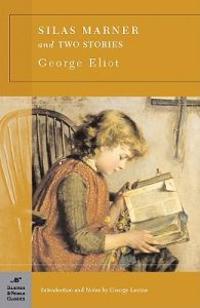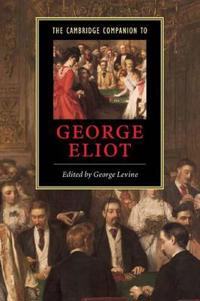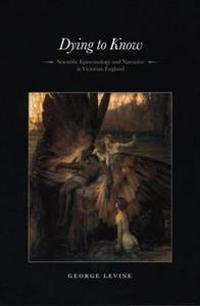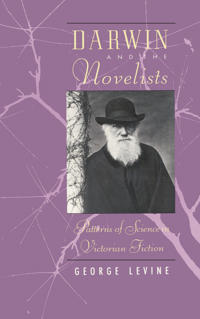Silas Marner and Two Short Stories (Pocket)
avGeorge Eliot, George Levine, George Eliot
ISBN: 9781593082512 - UTGIVEN: 2005-09The Cambridge Companion to George Eliot (Pocket)
avGeorge (EDT) Levine
ISBN: 9780521664738 - UTGIVEN: 2001-05This volume of specially-commissioned essays provides accessible introductions to all aspects of George Eliot?s writing by some of the most distinguished new and established scholars and critics of Victorian literature. The essays are comprehensive, scholarly and lucidly written, and at the same tim[...]
Darwin The Writer (Inbunden)
avGeorge Levine
ISBN: 9780199608430 - UTGIVEN: 2011-06-30Darwin's enormous cultural success depended as much on the construction of his argument and the artistry of his language as it did on the power of his ideas. By exploring Darwin as a writer as well as a scientist, this book transforms our understanding of him, giving us a Darwin who is comic rather[...]
Dying to Know (Inbunden)
avGeorge Levine
ISBN: 9780226475363 - UTGIVEN: 200209In "Dying to Know", eminent critic George Levine makes a landmark contribution to the history and theory of scientific knowledge. This book explores the paradoxes of our modern ideal of objectivity, in particular its emphasis on the impersonality and disinterestedness of truth. How, asks Levine, did[...]
Realistic Imagination (Häftad)
avGeorge Levine
ISBN: 9780226475516 - UTGIVEN: 1983-04In "The Realistic Imagination," George Levine argues that the Victorian realists and the later modernists were in fact doing similar things in their fiction: they were trying to use language to get beyond language. Levine sees the history of the nineteenth- and early twentieth-century novel as a con[...]
Darwin and the Novelists (Pocket)
avGeorge Levine
ISBN: 9780226475745 - UTGIVEN: 1992-01Levine shows how Darwin's ideas affected nineteenth-century novelists--from Dickens and Trollope to Conrad. Levine stands in our day as the premier critic and commentator on Victorian prose.--Frank M. Turner, Nineteenth-Century Literature. Magnificently written, with a care and delicacy worthy of it[...]
Darwin Loves You: Natural Selection and the Re-Enchantment of the World (Övrig)
avGeorge Levine
ISBN: 9780691136394 - UTGIVEN: 2008-03-10Jesus and Darwin do battle on car bumpers across America. Medallions of fish symbolizing Jesus are answered by ones of amphibians stamped "Darwin," and stickers proclaiming "Jesus Loves You" are countered by "Darwin Loves You." The bumper sticker debate might be trivial and the pronouncement that "D[...]
How to Read the Victorian Novel (Inbunden)
avGeorge Levine
ISBN: 9781405130554 - UTGIVEN: 2007-11-30











